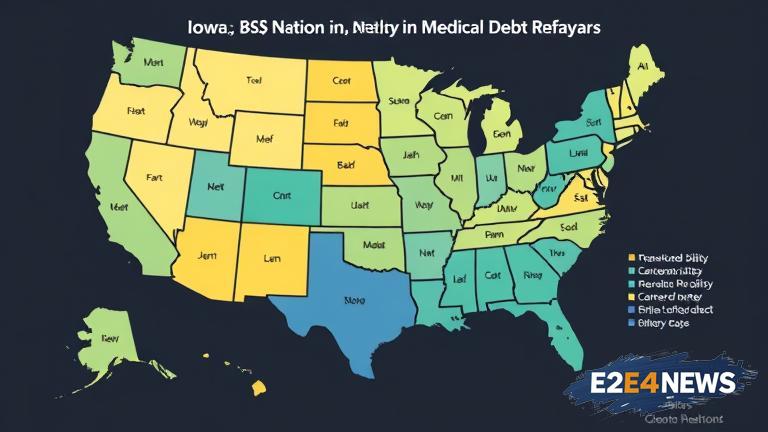A recent report has revealed that Iowans are taking the lead in paying off medical debt, with the state boasting the fastest rate of medical debt repayment in the country. This trend is a welcome respite for many Iowa residents who have struggled with the financial burden of medical expenses. The data shows that Iowans are making significant strides in reducing their medical debt, with many individuals and families working hard to pay off outstanding balances. The reasons behind this trend are multifaceted, with some attributing it to the state’s strong economy and low unemployment rate. Others point to the growing awareness of the importance of financial literacy and responsible money management. Additionally, the rise of online payment platforms and medical billing services has made it easier for individuals to manage and pay off their medical debt. Furthermore, many healthcare providers in Iowa are now offering more flexible payment plans and financial assistance programs, which has helped to alleviate the financial burden on patients. As a result, Iowans are able to focus on their health and wellbeing, rather than worrying about the financial implications of medical treatment. The state’s medical debt repayment rate is a testament to the resilience and determination of its residents. Moreover, this trend has significant implications for the broader healthcare industry, as it highlights the importance of affordable and accessible healthcare. The data also suggests that other states could learn from Iowa’s approach to medical debt repayment, and implement similar strategies to support their own residents. In terms of policy, lawmakers in Iowa have implemented measures to protect consumers from predatory medical billing practices, which has helped to reduce the overall burden of medical debt. The state has also invested in programs aimed at improving financial literacy and providing resources for individuals struggling with medical debt. These efforts have paid off, with Iowans now leading the way in medical debt repayment. The report’s findings have been welcomed by healthcare advocates, who see it as a positive step towards creating a more sustainable and equitable healthcare system. However, there is still work to be done, as many Iowans continue to struggle with medical debt. To address this, healthcare providers and policymakers must continue to work together to find solutions that prioritize patient affordability and access to care. By doing so, Iowa can continue to lead the way in medical debt repayment, and serve as a model for other states to follow. The state’s success in this area is a reminder that, with the right approach and support, individuals and families can overcome even the most daunting financial challenges. As the healthcare landscape continues to evolve, it will be important for Iowa to stay at the forefront of medical debt repayment, and to continue innovating and improving its approach to supporting residents with medical debt. In conclusion, Iowa’s lead in medical debt repayment is a significant achievement, and one that has important implications for the state’s residents and the broader healthcare industry. By prioritizing affordable and accessible healthcare, and providing support for individuals struggling with medical debt, Iowa is creating a more sustainable and equitable healthcare system for all. The state’s success in this area is a testament to the power of collaboration and innovation, and serves as a model for other states to follow. With continued effort and dedication, Iowa can ensure that its residents have access to the healthcare they need, without being burdened by unmanageable medical debt.





